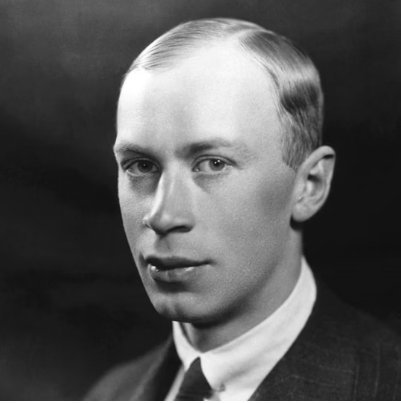
Sergey Prokofiev
Russian composer and pianist, was born on April 23, 1891, in Sontsovka, Ukraine. Prokofiev emerged as a significant figure in 20th-century classical music, known for his innovative compositions that bridged the gap between the Russian and Western traditions.
Prokofiev’s musical talent was evident from an early age, and he entered the St. Petersburg Conservatory at just 13. There, he studied composition under renowned teachers, including Anatoly Lyadov and Nikolai Rimsky-Korsakov. His early works already displayed a distinctive style marked by dissonant harmonies, rhythmic complexity, and a penchant for experimentation.
In the tumultuous period leading up to the Russian Revolution, Prokofiev left Russia in 1918, seeking artistic opportunities abroad. He spent nearly two decades living in the United States, France, and Germany. During this time, he composed prolifically, producing works showcasing his ability to blend traditional Russian elements with avant-garde influences seamlessly.
Prokofiev’s compositions often exhibited a wide range of emotions and styles. His ballet music, including “Romeo and Juliet” and “Cinderella,” demonstrated his gift for creating vivid, evocative scores. In addition to ballets, Prokofiev composed symphonies, operas, and piano concertos, contributing to virtually every primary genre of classical music.
One of his most famous works, “Peter and the Wolf,” a musical fairy tale for children, exemplifies Prokofiev’s knack for combining accessibility with musical innovation. Premiered in 1936, it remains a beloved piece that introduces young audiences to the orchestra’s instruments through a captivating narrative.
Returning to the Soviet Union in 1936, Prokofiev faced the challenges of conforming to the artistic constraints imposed by the Stalinist regime. Despite this, he produced notable works, such as his Symphony No. 5, which, while serving socialist realism, retained elements of his style.
The outbreak of World War II found Prokofiev composing some of his most renowned pieces, including the War Sonatas for piano. The Seventh Symphony, known as the “War Symphony,” reflects the resilience and spirit of the Soviet people during the conflict.
Health issues and a challenging political climate marked Prokofiev’s later years. He passed away on March 5, 1953, the same day as Joseph Stalin. His legacy lives on through his diverse and influential body of work, which continues to be celebrated for its originality, expressiveness, and the synthesis of various musical traditions. Sergey Prokofiev remains a towering figure in the realm of 20th-century classical music.
